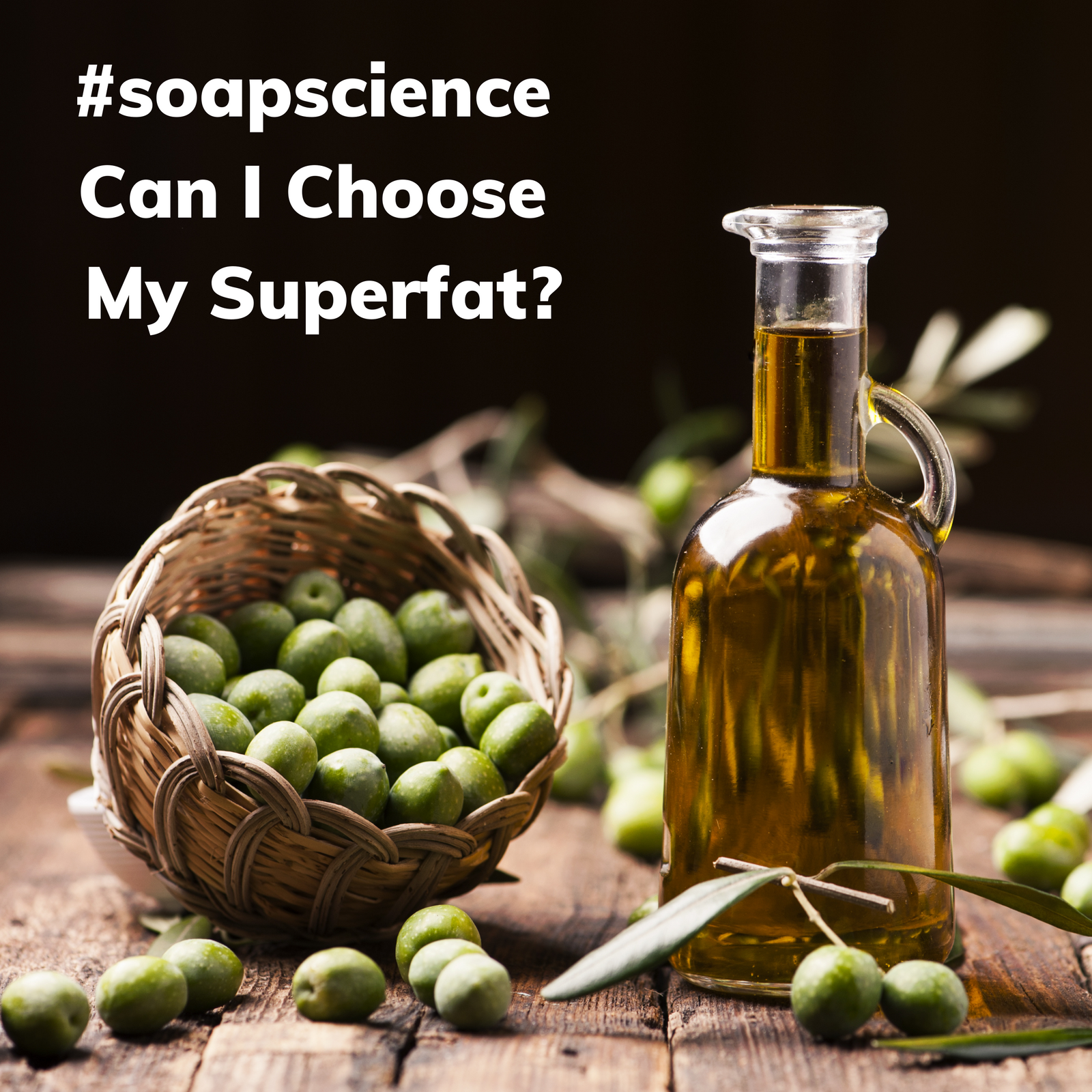Can I Choose My Super Fat in Soap Making?

Can I Choose My Super Fat in Soap Making?
In a nutshell, with cold processed soap, no.
Your cold processed soap chooses its own at super fat and there is very little you can do about that. Generally it will, in the main, be the slowest saponifying oils which are your liquid oils. I have read that you can influence your chosen superfat by adding it at trace and before you pour soap batter in to the mould but this does not appear to be the case. It has been tested in quite some depth and evidenced by Kevin Dunn in his publication.
Dunn, K.M. (2010). Scientific soapmaking : the chemistry of the cold process. Farmville, Va: Clavicula Press.
This makes sense as the saponification process takes place over around 48 hours, so adding a super fat as soon as you have mixed your oils and lye to emulsification and prior to putting it in your mould will never influence the end result, at least not to any significant degree.
Hot process soap making however is a completely different beast. You can have complete control over your super fat simply by adding it after the cook. The students in my hands on soap making classes often have difficulty getting their head around this which I completely understand as they are generally learning everything from scratch on the space of just one day but this is the simple explanation.
When hot processing soap you are adding your butters, oils and lye solution to the slow cooker, mixing it to trace and then cooking it to force it through saponification. This usually takes around 30 minutes and it means that by the time you put your soap in the mould the chemical reaction has completed and you already have a basic soap with no sodium hydroxide left.
This means if you make your hot process soap with a 0% superfat in the first instance, wait until that stage has completed and then add your chosen superfat , you know that there is no sodium hydroxide left as it has all been used up during the cook and whatever else you add will remain in the soap bar in it's original form.

Why would I want to choose my superfat?
Not all butters and oils are equal. Some are more expensive than others, some are more luxurious or suited to different skin types than others. A great example is rosehip oil. Packed with vitamin A and with properties that are extremely beneficial to more mature skins, this is a lovely oil to have in a facial soap, for example. But it is expensive and using a lot of it in soap is not realistic. But by adding it as our superfat AFTER the cook, we know that we are getting the full benefit of that particular oil on our skin in it's pure form.
I hope you found that helpful.
Hey Jenia, yes I agree. I think I put that last comment on the wrong blog. I would not choose coconut oil as a superfat either :) Keri
I’ve kept many charts and notes throughout my soaping journey through many years and many oils have a horrifically high comedogenic # of 4 and in my opinion coconut oil as well as other oils with their pore clogging attributes are the worst to super fat with. If I’m gonna take the time to superfat it’s usually with non comedogenic oils or at the most a 2 or lower for moisturizing and vitamin skin loving nutrients. Now don’t get me wrong Coconut oil is extremely good for cleaning and laundry and creates great lather and will clean that oily skin but will ultimately strip it of even oily skins needed sebum. That’s another subject all together & misconception that people have about oily skin doesn’t need conditioning or moisture because it does. I won’t go into that😁but I will say coconut milk can have it’s skin loving properties as well as many milks. I say if you’re gonna superfat please use skin loving nutrient oils, not coconut. I think possibly coconut is advertised as great for hair, skin , etc to get u to clog your scalp and pores so that then you’ll
need to buy something to help your skin afterwards. Kinda get the picture?! A money racket!! Hemp, grapeseed, apricot, sweet almond, etc are great. I’ll probably get backlash from this but it is just that – my opinion. Do some research many times over before hating me please! Koodos and happy soaping!!
I can’t really answer that Naomie as they all have different benefits but coconut oil and olive oil are really common and a good addition to most soaps.
Hi Ashlynn yes you can use 2 different oils to super fat (in hot process soap)
Could you use two different types of oils/butters for superfatting at once? Ex: 3% Shea butter 2% rose hip to equal 5% super fat??
Leave a comment